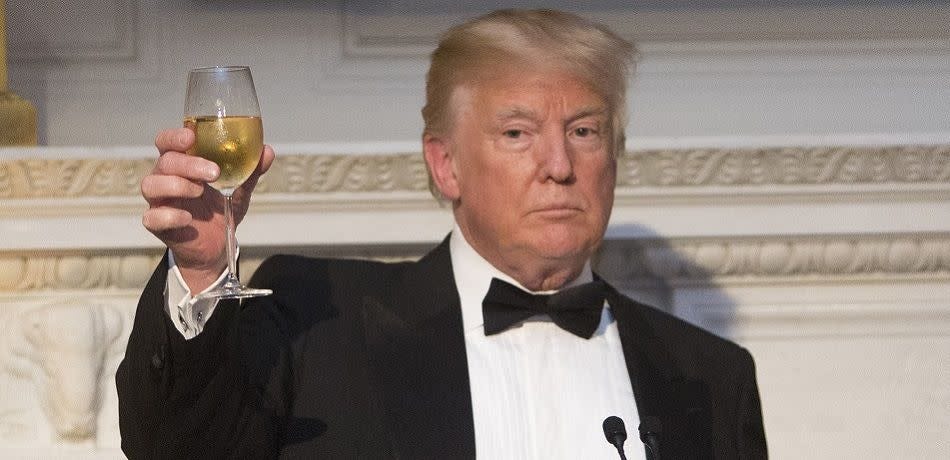One of the big headlines from the 2024 election was the collapse of Democratic support among the working class and the profound implications it would have on the electoral landscape moving forward.
This was not a sudden, unexpected shift. The story goes something like this: Democrats were the champion of working class Americans dating back to the days of Franklin Roosevelt and the New Deal in the 1930s. The Democratic Party led the creation of laws supporting unionization, the minimum wage, unemployment insurance, Social Security, Medicare and Medicaid.
But somewhere along the lines the party apparatus began to shift. Maybe it was after Johnson signed the 1964 Civil Rights Act. Maybe it was the post-Vietnam Watergate babies who came to DC in the 1970s. Maybe it was Jimmy Carter’s embrace of neoliberal economics or Bill Clinton’s acceleration of it - with devastating trade deals like NAFTA and permanent normal trade relations with China.
Probably it was a combination of all of that, and the growing shift around the turn of the century where increasingly Democrats became the party of college graduates, who found their careers in the service sector as a kind of managerial class in coastal cities. The party became disconnected from the interior of the country - and thus the profound, disastrous implications of neoliberalism - deciding instead to focus on identity politics and social issues.
The Republican Party picked up on this and pantomiming working class culture issues while still slavishly devoting themselves to the rich donors whose agenda they had long served. This was the essence of George W. Bush.
And then, in 2016, along comes Donald Trump. Trump correctly denounced the trade deals that had devastated large parts of the country and campaigned on raising taxes on rich people while protecting the social welfare programs that Republicans had long sought to dismantle. He won the election.
But his promises were mostly empty. He did tinker with trade and promoted a kind of industrial policy that both parties had long decried as an ugly affront to the high temple of free market economics. But he also followed the long Republican tradition of prioritizing rewards for wealthy Americans.
Trump immediately tried to repeal the Affordable Care Act, which would strip millions of Americans from having any kind of health care. In that he failed. But his next major priority was the same priority as George W. Bush - giant tax cuts for rich people and corporations. He also embraced a policy of undoing consumer protections and removing regulations on corporations that would prevent them from exploiting working class Americans. That included pushing through major deregulation of banks a decade after Wall Street greed had crashed the global economy.
But this time was supposed to be different. Has it been?
Trump has continued to embrace cultural conservatism. He is pushing an end to DEI programs in and outside the government and forcing universities to back away from a gender ideology that lets people who were born as biological males compete against women in sports. But most of it, thus far, ends there.
On the economics front, he and the GOP have gone right back to the same agenda as Paul Ryan, Mitt Romney and George W. Bush. Consider a few examples.
Under the Biden Administration, the Consumer Financial Protection Bureau had set a rule that stopped banks from charging more than $5 for overdraft fees. Last week, every Republican Senator save one voted to repeal that rule.
Before that, the Trump administration dropped a series of lawsuits against corporations that had been caught screwing over their customers - including a lawsuit against Capital One for cheating customers out of $2 billion in interest payments.
Republicans are also working to repeal a Biden era “click to cancel” rule that mandated companies with subscription services make it easier for people to cancel their subscriptions - and not have to go through layers of websites or phone calls to do so.
And of course, the main priority for the Trump legislative agenda right now is to pass a giant tax cut bill for rich people and corporations - making his previous tax cuts permanent and adding more on top of that.
This is not the party of the working class. And the GOP has clearly not changed its tune on who they prioritize above all - their donors.
The Republican Party agenda is to give corporations greater and greater power over working Americans, allowing them to exploit, fleece and screw people over in the name of profit. Their loyalty is to the wealthiest Americans who want to see more money deliver to their pockets, even if it comes at the expense of regulations or programs that protect every day Americans.
But they enact this agenda while playing into Americans’ understandable distaste for the Democrats’ social policies on gender, race and the ever ambiguous notion of “equity.”
This is not a new paradox. It was the focus of Thomas Frank’s 2004 book “What’s the Matter with Kansas?” which explored why rural, working class Americans prioritized voting on cultural issues and thus empowering Republicans, even as the Republican economic agenda would materially harm those same voters.
But the Trump 2024 victory seemed to have changed the conversation - especially with his strong, multi-racial gains with working class voters and the Democrats’ gains with wealthier ones.
And yet, despite the conversation changing, the policies have largely stayed the same. I will give Trump credit for breaking the circuit over a several decade long, bipartisan embrace of neoliberalism. But at the end of the day, his agenda is to serve wealthy people and corporations. He throws out red meat but he is not the president of the working class. The shame is that Democrats are not able to leverage this, build a vision for the future and recapture the voters they lost.




